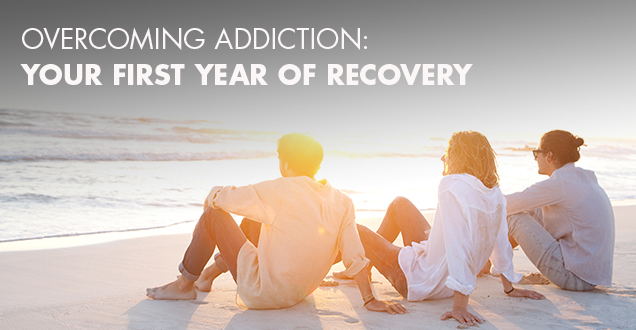
Once sobriety is attained, the journey of overcoming addiction continues. In the first year of addiction recovery, a number of circumstances, emotions, and urges can arise. Addiction recovery differs for each person, but understanding how to overcome addiction and maintain sobriety amidst outside circumstances and pressures is key to successfully overcoming addiction. The first step in this process is to know what to expect in the first year of addiction recovery.
The Realization that Everyone Recovers Differently
When embarking on your first year overcoming addiction, it is important to remember that everyone recovers differently and each will experience different emotions, triggers, and struggles throughout the process. It is a natural human instinct to want to compare yourself to someone else you know who has also gone through addiction recovery, but this can lead to feelings of inadequacy and pressure that exist only because of perception.
Give yourself the space to find your path to overcoming addiction and explore what methods work for you in combatting potential addiction triggers that in the past would have caused a relapse. Do not measure your success against others, because every person has a different set of circumstances, personal experiences, environmental factors, and physical ramifications that are present in their addiction recovery.
Any comparison between two addiction recoveries will be skewed from the outset. To avoid doing this, make a list of personal goals and milestones that you want to achieve in your first year overcoming addiction and come up with a reward for attaining each one. This will make a schedule that is uniquely bound to you and your journey overcoming addiction.
The Ending of Relationships and Friendships
To maintain sobriety and prevent the chances of a relapse, it is vital that all relationships that encourage addictive behavior be reevaluated and potentially terminated. As hard as it can be to let go of a friendship or relationship, it is sometimes necessary to successfully remain sober.
If any person in your life makes you want to engage in addictive behavior; tempts you with alcohol or drugs, brings you into situations where addiction triggers exist, or pressures you to return to the cycle of addiction, they do not want what is best for you and are not supporting your goals in overcoming addiction. This can be a tough and emotional reality to deal with, but some relationships and friendships will have to end for you to successfully maintain addiction recovery.
The Emotional Tides
Addiction recovery is a process with many emotional twists and turns, and the toll they take can be tremendous. Frequently, there are feelings of sadness, depression, and disappointment that seem to follow people around throughout the first year of overcoming addiction. Many people struggle to combat these emotions and find them a catalyst that pushes them back into the cycle of addiction, but that does not have to happen.
Feeling a broad range of emotions after entering addiction recovery is entirely normal and to be expected. It is important not to let bad days push you back towards engaging in addictive behavior, as all this does is put you back at the very beginning of the cycle of addiction.
It is important to keep in mind throughout your recovery how far you have come, the challenges you have overcome, and the bravery and determination you have exhibited throughout the process simply by continuing in your course of overcoming addiction. Take note of these accomplishments and use them as a reminder of difficult days of how resilient you are and how much farther you want to go in your recovery.
Just as you may experience these lows, you may also experience some days that leave you feeling overconfident. Further into your first year overcoming addiction, you may begin to feel that you have beat your addiction and no longer need to engage in the same rigorous, preventative behaviors.
For some people, this may mean that they seek out old friends with whom they drank or used drugs since they are now confident they can be there and not feel tempted to engage in addictive behavior. However, this is precisely the kind of behavior that will heighten the chances of relapse and endanger the sobriety you have worked to achieve.
It is important to know throughout your first year of recovery that there will be high and lows and to weather them both without making quick decisions or engaging in behaviors that will jeopardize your sobriety.
The Importance of Schedules
One of the best methods for how to overcome addiction is to create schedules and boundaries that will keep your life structured and on the right path. One way to implement a plan is to get a job with set hours in an environment that is free of addiction triggers since this will keep each day consistent and will occupy your time with a healthy career. Another way to do this is to keep a planner that has time blocked out with specific activities and goals set for each day, week, month, and the year.
These goals can range from personal to professional to monetary, but regardless of the type, they will give you a place to focus your efforts and achieve milestones at which you can reward yourself. If you are a part of a program or have meetings with an addiction counselor, make a consistent schedule each week to ensure you never miss these important meetings. In addition to this, make sure you include an activity in your schedule that gives you a healthy release of frustration and energy to help prevent the urge to engage in addictive behavior.
Addiction is not something that goes away, but determining how to overcome addiction is the key to having a successful addiction recovery. The first year overcoming addiction can be tough and emotionally trying, but remember to be kind to yourself and revel in your accomplishments instead of dwelling on your shortcomings.




